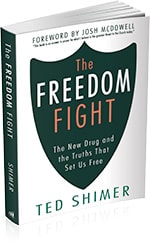
is an
answer
to prayer!” – Josh McDowell Author and Speaker
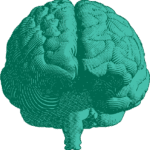 Just trying harder to stop a porn habit doesn’t work. The physical structure of the porn user’s brain is changed by prolonged porn use, and if they don’t address the brain-altering impact of porn it is nearly impossible to change their behavior.
Just trying harder to stop a porn habit doesn’t work. The physical structure of the porn user’s brain is changed by prolonged porn use, and if they don’t address the brain-altering impact of porn it is nearly impossible to change their behavior.
When a person climaxes, whether by using porn or having sex, their brains give us the highest reward it can. The brain makes note of it to remind them to do that again. When they are initially triggered to use porn, their brain increases the craving to move them in the direction to use again. The brain uses dopamine to activate craving and desire. Dopamine is released not only at the fulfillment of pleasure but also in anticipation of pleasure.
The brain gives a hit of dopamine to move people down that familiar path because of the rewards and pleasure at the end. Everything in them says, “I must have it.” It consumes their thoughts. All they want is to be alone with porn. The more they travel this pathway in the brain, the stronger it gets, and the more difficult it is to stop the urge to travel it.
Elevated dopamine levels in the brain because of regular porn use impair the ability of the brakes to stop. This is why it is difficult for a habitual porn user to stop watching porn even when he or she wants to. This phenomenon is true for any addiction. This is why so many addicts feel helpless. This doesn’t excuse a person’s porn use, but it does help explain how an otherwise godly person who genuinely wants to quit often can’t without help.
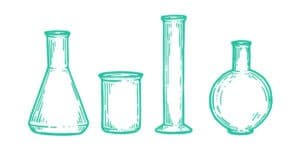
Dopamine is the main pleasure chemical the brain releases when a person experiences something enjoyable. Sex is the highest natural reward of dopamine the brain gives. Drugs like cocaine release unnatural amounts of dopamine into the body. So does meth. So does pornography. Dopamine ensures that the brain will remember and later crave the activities that led to the high. Chasing dopamine can be so consuming that people risk it all: their job, marriage, ministry, and integrity.
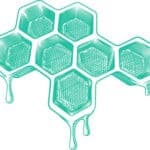 Porn is like candy: it brings a quick high, but it can’t sustain you and it rots the soul. When we consider the unlimited access and the dopamine burst of porn, it’s no wonder people get hooked on it. It’s not just about the porn, it’s about the craving for the high.
Porn is like candy: it brings a quick high, but it can’t sustain you and it rots the soul. When we consider the unlimited access and the dopamine burst of porn, it’s no wonder people get hooked on it. It’s not just about the porn, it’s about the craving for the high.
The American Society for Addiction Medicine (ASAM) asserts that addiction is fundamentally a brain disease, explaining that the disease is in the brain’s reward system. Addiction occurs when the brain’s reward system is hijacked. The hijacking causes people to crave pleasure from sources that are ultimately harmful–drugs, alcohol, pornography, etc.
What ASAM calls disease, the Bible calls being in bondage to sin and “carrying out the desires of the mind” (Ephesians 2:3). The cravings of the addicted brain take over. Understanding the biology of the brain helps those caught in addiction renew their mind more effectively.
When a person continues indulging a porn habit, his or her brain can start to build a certain tolerance. Many issues can occur when the brain builds up a tolerance to porn:
When someone chases a dopamine high, they find themselves watching things they never thought they’d watch and doing things they never thought they’d do.
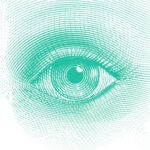 Hypofrontality is the phenomenon of a person’s prefrontal cortex (PFC) –their brakes – not operating effectively. It is the erosion of their willpower. Prolonged porn use saturates the PFC with dopamine. One of the results of elevated levels of dopamine is that the PFC doesn’t absorb dopamine effectively. The PFC also gets less blood flow and therefore less oxygen. When the PFC absorbs less dopamine and gets less oxygen, it operates less effectively. The brakes are weakened.
Hypofrontality is the phenomenon of a person’s prefrontal cortex (PFC) –their brakes – not operating effectively. It is the erosion of their willpower. Prolonged porn use saturates the PFC with dopamine. One of the results of elevated levels of dopamine is that the PFC doesn’t absorb dopamine effectively. The PFC also gets less blood flow and therefore less oxygen. When the PFC absorbs less dopamine and gets less oxygen, it operates less effectively. The brakes are weakened.
Hypofrontality helps explain how someone can continue to make bad decisions even in the face of great personal cost. They have lost the ability to restrain themself. Stopping porn use and unwanted sexual behavior can address the problem of hypofrontality. When elevated dopamine levels return to normal, the brain can heal and start absorbing dopamine effectively again. When this happens, impulse control and moral reasoning begin to function at a normal level. Healing takes time. This is why detox is so important. It helps people heal their brains by repairing their brakes.
Another result of an addicted brain is the accumulation of the molecule DeltaFosB. Researcher Eric Nestler has shown how this protein molecule accumulates and persists in the reward pathways of the brain in response to chronic stimulation due to an addiction. When pornography is consumed regularly it produces large amounts of dopamine, which results in Delta FosB and in turn leads to the addiction-related changes in the brain that cause craving and bingeing.
After six to eight weeks of abstinence from an addictive substance there is often a breakthrough for patients in their recovery. It is suspected that the decline of the presence of Delta FosB is key to the improvement that many recovering addicts often see once they get to the 8-week mark of their abstinence from their addictive substance.
 It’s a challenging situation. When a person’s willpower has been eroded by excessive porn use but they need to stop porn to get their willpower back to normal… it’s a catch 22. This is why a 95% commitment to detox won’t work. There must be 100% commitment to detox when your brakes are in such a weak condition. Going on lock down and having accountability is essential for someone to escape the snare of pornography.
It’s a challenging situation. When a person’s willpower has been eroded by excessive porn use but they need to stop porn to get their willpower back to normal… it’s a catch 22. This is why a 95% commitment to detox won’t work. There must be 100% commitment to detox when your brakes are in such a weak condition. Going on lock down and having accountability is essential for someone to escape the snare of pornography.
The addicted brain is the second of the six roots of a porn addiction. The mind must be renewed. One important step in this process is strengthening impulse control. This is done in two ways:
During detox, the brain will crave relief while willpower is weak. This is why the Freedom Fight created the BRACE tool for you to use every time you face a temptation or trigger. Deep breathing also gets more oxygen to the PFC and helps you build a new pathway when triggered.
Detox begins when the addict stops sexually acting out. They abstain from masturbation, porn, hooking up, or any other unwanted sexual behavior. Many sex addiction therapists encourage their clients to make a goal of going ninety days without a relapse for their initial detox. That may seem impossible, but taking it one day at a time is key.
 Detoxing allows the chemical levels in the brain to return to normal and reset. Detox will likely result in certain withdrawal symptoms. Initially, the person may become depressed because they are used to the high from the chemicals. They may experience the classic symptoms of detox and withdrawal: boredom, lack of interest and motivation, and the desire to isolate. The first few weeks are typically the most challenging.
Detoxing allows the chemical levels in the brain to return to normal and reset. Detox will likely result in certain withdrawal symptoms. Initially, the person may become depressed because they are used to the high from the chemicals. They may experience the classic symptoms of detox and withdrawal: boredom, lack of interest and motivation, and the desire to isolate. The first few weeks are typically the most challenging.
During detox, a porn addicted brain will crave dopamine. It will be important during this time to engage in activities that naturally raise the level of dopamine like exercise, good sleeping and eating habits, spiritual disciplines (Bible reading, prayer, etc.), and enjoying friends. This can help diminish the craving for a dopamine hit. Self-care is an essential element of recovery, especially during the initial detox.
The Freedom Fight is a completely-free-to-use, proven program for men and women who want to stop using porn. You will:
Porn has defined sexuality for many young people, especially those who had access to it during their teen years. Porn is fake sex. It offers feelings of fake intimacy. It distorts our view of and ability to enjoy the real thing. But with time and the right plan and support, your mind can heal.